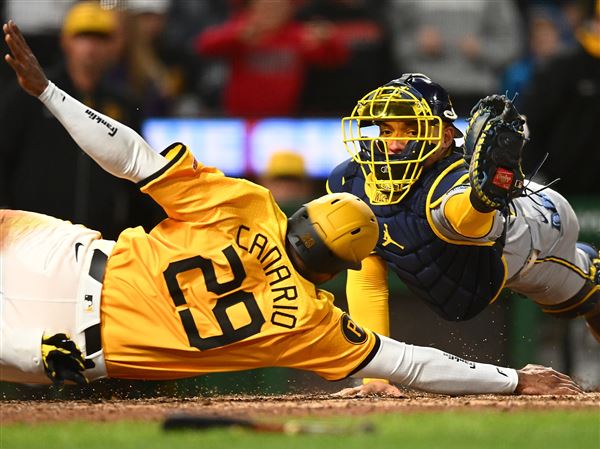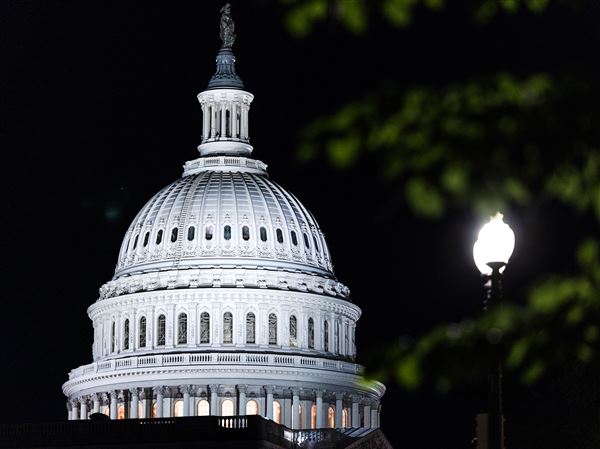DUBAI -- At the global treaty conference on telecommunications here, the United States got most of what it wanted. But then it refused to sign the document and left in a huff.
What was that all about? And what does it say about the future of the Internet -- which was virtually invented by the United States but now has many more users in the rest of the world?
It may mean little about how the Internet will operate in the coming years. But it might mean everything about a U.S. refusal to acknowledge even symbolic global oversight of the network.
The U.S. delegation, joined by a handful of Western allies, derided the treaty as a threat to Internet freedom. But most other nations signed it, and other participants at the two weeks of talks here were left wondering Friday whether the Americans had been negotiating in good faith -- or had planned all along to engage in a public debate only to make a dramatic exit, as they did near midnight Thursday as the signing deadline approached.
The head of the American delegation, Terry Kramer, announced that "it is with a heavy heart" that he could not "sign the agreement in its current form." U.S. delegates explained that the pact could encourage censorship and undermine the existing, hands-off approach to Internet oversight and replace it with government control.
Anyone reading the treaty, though, might be puzzled by these assertions. "Internet" does not appear anywhere in the 10-page text, which deals mostly with matters like the fees that telecommunications networks should charge each other for connecting calls across borders. After being excised from the pact at U.S. insistence, the I-word was consigned to a soft-pedaled resolution that is attached to the treaty.
The first paragraph of the treaty states: "These regulations do not address the content-related aspects of telecommunications." That convoluted phrasing was understood by all parties to refer to the Internet, delegates said, but without referring to it by name so as to not enable anyone to call it "an Internet treaty."
A preamble to the treaty commits signatories to implement the regulations "in a manner that respects and upholds their human rights obligations."
Both of these provisions were added during the final days of haggling in Dubai, with the support of the United States. If anything, the new treaty appears to make it more intellectually challenging for governments like China and Iran to justify their existing censorship of the Internet.
What's more, two other proposals that had raised objections from the United States were removed. One of those had stated that treaty signatories should share control over the Internet address-assignment system -- a function now handled by an international group based in the United States. The other, also removed at the Americans' behest, called for Internet companies like Google and Facebook to pay telecommunications networks for delivering content to users.
Given that the United States achieved many of its stated goals in the negotiations, why did it reject the treaty in an 11th-hour intervention that had clearly been coordinated with allies like Britain and Canada?
In a Dubai conference call with reporters in the wee hours of Friday, Mr. Kramer cited a few remaining objections, like references to countering spam and to ensuring "the security and robustness of international telecommunications networks." This wording, he argued, could be used by nefarious governments to justify crackdowns on free speech.
But even Mr. Kramer acknowledged that his real concerns were less tangible, saying it was the "normative" tone of the debate that had mattered most. The United States and its allies, in other words, saw a chance to use the treaty conference as a bully pulpit to make a strong statement about the importance of Internet freedom. But by refusing to sign the treaty and boycotting the closing ceremony, they made clear that even to talk about the appearance of global rules for cyberspace was a nonstarter.
It may have been grandstanding, but some U.S. allies in Europe were happy to go along, saying the strong American stand would underline the importance of keeping the Internet open.
"This could be a watershed moment in the discussion of Internet freedom," said Jochem K.A. de Groot, senior policy officer for the Internet and human rights in the Foreign Ministry of the Netherlands, which joined the United States in opposition to the pact.
The fact that the talks -- convened by a United Nations agency, the International Telecommunication Union -- took place in this economically liberal but socially and politically battened-down emirate, underscored the symbolism of the U.S. boycott of the final treaty.
"There were a lot of messages being sent to countries around the world," said Moez Chakchouk, chief executive of the Tunisian Internet Agency, in an interview. ''It's a good message to start the debate."
Since the Arab Spring deposed the authoritarian government of the then Tunisian president, Zine el-Abidine Ben-Ali, that country has taken a strong stand in support of Internet freedom. Nonetheless, Mr. Chakchouk said his government would sign the telecommunications treaty because he was satisfied with the free-speech guarantees that had been written into it.
"It's important for all of us to work together," he said. "It's not good when one country doesn't understand the issues."
Working together could get more challenging as the Internet -- especially bandwidth-hungry video applications -- accounts for an ever greater share of global telecommunications traffic, and as more and more people in developing countries go online.
According to Hamadoun Touré, secretary-general of the U.N. agency running the meeting, the International Telecommunication Union, the goal of the treaty was not to take control of the Internet -- as critics had charged -- but to narrow the digital divide.
While the United States was talking about the open Internet, Mr. Touré and representatives of developing countries were talking about opening the Internet to more of the 4.5 billion people around the world who remain offline.
Mr. Touré emphasized treaty proposals for stimulating investment in broadband networks, for reducing mobile phone roaming costs and for extending Internet access to disabled people in developing countries. The goal was to expand broadband, at an affordable cost, not to regulate, the content that travels on the Internet, he said.
"What is the meaning of building cars if there are no highways for them to drive on?" Mr. Touré said at a news conference Friday, where the I.T.U. tried to put a positive spin on the messy pile-up of the previous evening.
As developing countries gain better access, the numbers game will continue to tilt against the United States and other developed countries that have championed the cause of an open Internet. The Internet population of China -- 538 million as of June, according the Chinese government -- is already nearly double that of the United States.
Mr. Kramer, the chief U.S. delegate, said that as Internet use expands in developing countries, governments and citizens of these countries might also grow more tolerant of it.
"It is clear that the world community is a crossroads in its view of the Internet and its relationship to society in the coming century," Mr. Kramer said.
By Friday evening, 89 of 144 countries that were eligible to vote had signed the document; about two dozen had indicated that they would not, Mr. Touré said, with the rest still undecided or undeclared. Holdouts could change their minds and sign later. Mr. Touré said he was hopeful that the United States would eventually do so, though Mr. Kramer said this was "unlikely."
Otherwise, the events in Dubai raise the curious prospect of a treaty largely negotiated to suit the U.S. position and applying mostly to developing countries, many of which seemed perfectly happy with the outcome.
First Published: December 14, 2012, 11:00 p.m.















